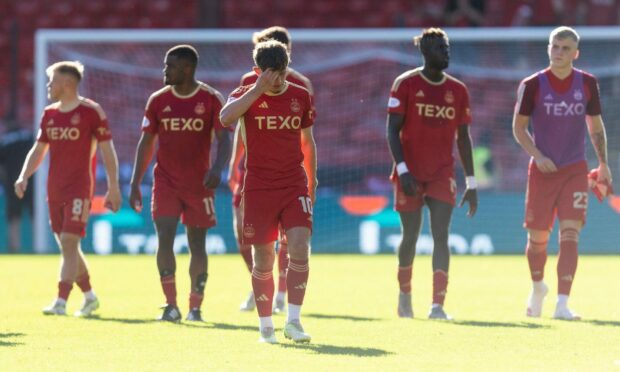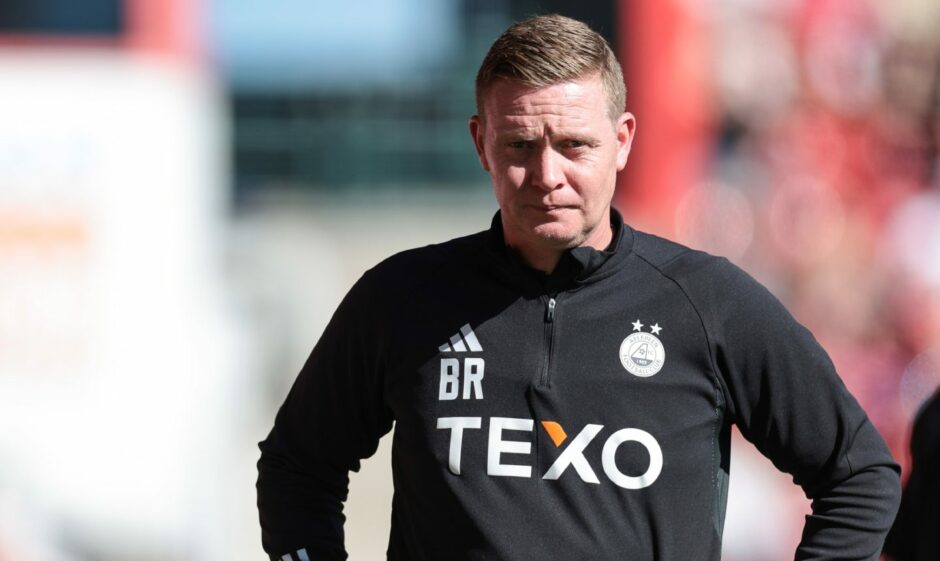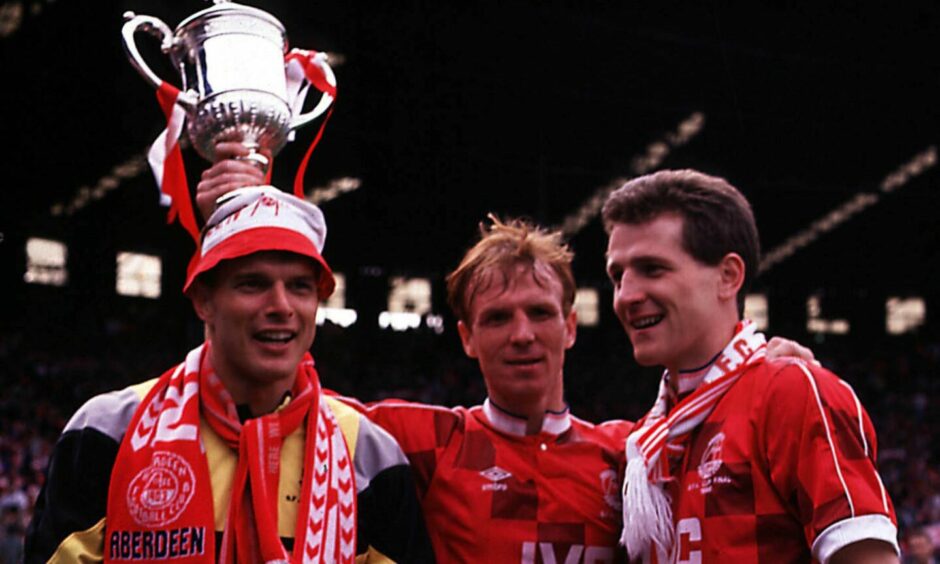Former Don Brian Irvine believes finding a defensive foundation to build on is key to Aberdeen getting their season up and running.
The Dons have not kept a clean sheet since the opening day of the season at Livingston, and have fielded four different defensive trios in their last four games as manager Barry Robson searches for a winning formula.
Sunday’s 2-0 home defeat by Hibernian left the Dons second bottom of the Scottish Premiership and still searching for their first league win.
Irvine says addressing the defence is the priority for the Dons boss during the international break.
He said: “There was a great run of wins when Barry took over last year, but the personnel at the moment hasn’t clicked.
“It’s a completely different backline and the challenge for Barry and his coaching staff is to sort that out.
“The defence made the difference last season.
“They had a tough first half of the season. But when Barry came in the defence was stronger and didn’t concede a lot of goals… but that hasn’t been the case so far.
“Looking at Sunday’s game against Hibs there was no solidity which you identify in a winning team.
“That’s the big difference from last year. There doesn’t seem to be a base there yet to build on.”
‘Barry isn’t happy he has the right blend’
Irvine is convinced the ever-changing backline personnel highlights the Aberdeen manager is still trying to find his strongest line-up.
With three other defenders – Or Dadia, Rhys Williams and deadline day loan signing Stefen Gartenmann – yet to make their debut, it is clear there will be further tinkering of the defence in the weeks ahead.
But Irvine, scorer of the winning penalty in the Scottish Cup shootout win over Celtic in 1990, believes the solidity Robson craves will come.
He said: “The constant changes tells you clearly Barry isn’t happy he has the right blend yet.
“Once he finds the right combination, it will click into gear.
“Players have to be comfortable not only in the position they are playing, but also with the guy they are playing next to.
“Chopping and changing certainly affects a player’s approach to the game. There is an uncertainty there and Barry can’t have that.
“He needs his defenders to be focused on the players they are up against – not what their team-mates are doing.
“It’s early in the season. If we were in November or December and having this problem, it would be more serious, but I think it’s early enough that it can be sorted.
“His team will settle down and he will find the right personnel for these positions.”
Irvine learned from the best
Irvine played for the Dons from 1985 to 1997 and had the benefit of learning from some of the best central defenders in the club’s history in Willie Miller and Alex McLeish.
The 58-year-old insists making players comfortable in their own position, in a formation and having confidence in their team-mates is vital to a successful defensive set-up.
He said: “From my own experience, I wasn’t comfortable in a back three. I wasn’t a ball player – I was a defender who made tackles and won headers.
“Today you have to be more of a football player and build up the play from the back from the goalkeeper.
“A back four for example is more solid and encourages you to be a defender first.
“A back three defender requires to be a football-playing defender and that wasn’t a quality I had.
“That’s why it’s taking a little more time for players to be comfortable.”
Familiarity is vital for a successful defence
Irvine reaped the international rewards of having a strong understanding at club level during his time at Pittodrie.
He added: “I benefited from that in 1990 when Scotland were due to play Romania in a European Championship qualifier.
“I was called in because Stewart McKimmie was the right-back and Alex McLeish was the centre-back, and Andy Roxburgh knew I would fit in alongside them.
“I knew what Alex would do on my left and what Stewart would do on my right and it worked as we won the game 2-1.
“That is what you need to have in a club system – you need to know the system, how you play in it and most importantly how your team-mate plays in it.
“You don’t want to think: ‘Is he going to make a mistake or be out of position?’
“Understanding your role is the first part. Building those relationships by playing with the same team-mates consistently in training and in matches comes after that.
“If you can depend on the man next to you to clear the ball, win the header, make the tackle or play the pass, that’s how you succeed.
“Even knowing what the weaknesses are matters.”



Conversation